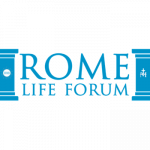by Father Pius Mary Noonan OSB PhD
Notre Dame Priory in Tasmania
July 7th 2024
Seventh Sunday after Pentecost
Last week, we considered the wonderful gift God has given us in the Roman Pontiff who is the guarantor of truth in defining dogmas of the faith. We examined the conditions on which such a definition can take place. Before we come to look at the Roman Pontiff’s role in the discipline of the Church, we must first consider a few more points regarding his teaching office.
We pointed out that when a dogma is defined, future popes, like all the other faithful, are bound by that dogma. They cannot change it, and they must abide by it in their own teaching. If they do not, then instead of being good guides, they can become obstacles to souls. This has happened. It does happen.
When the First Vatican Council was debating this question of papal infallibility, one of the major obstacles to the definition consisted in a number of historical episodes in which popes allowed and taught error and even heresy. They became like the wolves in sheep’s clothing of today’s Gospel. Along with all the truly holy and learned pontiffs who edified and enlightened the Church, there are unfortunately also a number who wreaked havoc in the Church by their spectacular failures to play the role that was theirs, a role that has objective parameters and an objective goal, independent of their own intentions. Everyone knows of the sordid stories of some of the Medieval and Renaissance popes who were guilty of a whole series of vices, from nepotism and simony to adultery and murder. These sad cases are not what we are talking about. Those cases simply prove that the pope remains a man; he is not an angel; and like any man he can sin. This is irrelevant to our question. Here we are examining the cases in which popes taught error and heresy and how this fits in with the infallibility of the Church.
Let’s have a look at three historical examples. In 357, in the midst of the Arian crisis, under pressure from his friends and overcome by the sufferings of the exile he had to endure, Pope Liberius gave in to the opponents of the true faith and signed a semi-Arian formula, that omitted the word consubstantial in reference to our blessed Lord. By signing this heretical document, Pope Liberius broke communion with the great St Athanasius and declared him to be separated from the Roman Church (St Athanasius spent a number of years officially excommunicated). Two years later, following the leadership of Pope Liberius, two local councils (Seleucia and Rimini) abandoned the pure expression of the consubstantiality of the Son with the Father proclaimed by the Council of Nicaea, and established a compromise formula. These councils, although not numbered among the ecumenical councils, were considered by most people at the time to be ecumenical councils. It was of this time that St Jerome famously wrote: “The whole world groaned and woke astounded to find itself Arian”. Cardinal Newman wrote that during this terrible period, the faith was preserved by the simple faithful and not by the clergy. St Hilary used a picturesque expression when he wrote that in this crisis the ears of the faithful were holier than the lips of the priests.
Three centuries later, the Church was in the midst of another crisis. It had already been defined that in our Lord there are two natures, divine and human, but there were still a number of Monophysites around, those who were teaching that there is only one nature in Our Lord, a mixture of the divine and the human. To please the heretics, the patriarch of Constantinople, Sergius by name, found a compromise in saying that even though there are two natures, there is only one operation and one will. It was a covert form of Monophysitism to be sure, one that sought to make everybody happy, and came to be called Monothelitism; it was the last of the great Christological heresies. This strange new teaching was resisted by the patriarch of Jerusalem Sophronius, who rightly denounced it as heresy. When Sergius wrote to Pope Honorius to get his support, Honorius complied and affirmed the heresy, while the emperor used the letters of the Pope to impose the new heresy on the empire. For forty years Monothelitism prevailed in the Byzantine empire thanks to the support of Pope Honorius. Finally, at the third council of Constantinople in 680 the heresy was condemned. In the condemnation, the council after having excommunicated all those who held the heresy, added this: “In addition to these, we decide that Honorius also, who was pope of Rome, be with them cast out of the Holy Church of God, and be anathematised with them, because we have found by his letter to Sergius that he followed his opinion in all things, and confirmed his wicked dogmas”. The acts of Constantinople III were solemnly approved by Pope Leo II, who wrote in a letter to the Emperor Constantine IV: “We anathematise the inventors of the new error (their names follow)… and also Honorius, who did not attempt to sanctify this Apostolic church with the teaching of apostolic tradition, but by profane treachery permitted its purity to be polluted”.
A third episode is that of Pope John XXII who, in a series of three sermons he gave in 1331 and 1332 declared that the souls of the elect do not enjoy the beatific vision until after the final judgment. What that means in plain terms is that holy souls don’t go to Heaven at all after their death, but are kept waiting till the end of the world. This teaching, which St Thomas Aquinas had held to be heretical already a century earlier, scandalised the entire Church, moving at least one cardinal, one bishop and one theologian to urge the Pope to retract. He eventually did, on his deathbed. Pope John XXII didn’t die a heretic, but it was close; he certainly lived as one and troubled the Church with his oddities.
These three examples suffice to show that the infallibility of the Roman Pontiffs is limited to very strict circumstances, later defined by Vatican I, none of which were met in these cases. It is important however to admit that these three popes were teaching these false doctrines. Their errors were beyond all doubt part of their Magisterium. And they were wrong. Why? Because they had the temerity – weakness of character, desire to please others, pride – to depart from the received doctrine of Tradition. To be sure, in the long line of popes, their cases are an anomaly. Most of the popes acquitted themselves honourably of their mission. So why speak of those who didn’t? Because history repeats itself. What happened before happens again. History is the great teacher of wisdom, and those who ignore it are doomed to repeat its blunders. In our democratic age in which the media have trained us to be on the lookout for every new vote of parliament or high court decision, some of which can modify substantially the principles of a nation, a lot of Catholics seem to have gotten it into their head that as soon as the pope speaks or writes an official document, he is guided by the Holy Spirit, and can change the Church at will. But the Pope is not a permanent oracle, an automatic declarer of truth. He sometimes gets it wrong.
The Catholic Church is not a sect. In a sect, the authority figure is seen to be the oracle of the divine. Whatever he says is right. Whatever he does is good. Such a mentality leads to the worst abuses, for a person in that position is inevitably corrupted by power. During the Second World War war in Italy the Italian fascist propaganda proclaimed: Il Duce ha sempre ragione.–The Duce is always right! If he is always right, then all we have to do is whatever he says, even it means degrading ourselves in the most vile way. Authority in the Church does not function that way. The leader, be he father of a family, priest, bishop or pope, is not always right. He receives power from God to lead, but always within an objective framework, from which he may not depart, under pain of abusing his authority. That framework is the dogma of faith and the moral conduct imposed by Almighty God.
Our Blessed Lord was aware of all this when He entrusted the keys to St Peter. If we go back to the main Gospel passage concerning the Petrine primacy that we evoked last week, Mt 16, immediately after establishing Peter as the Rock on which the Church will be built, Our Lord announces His upcoming passion and death. Peter steps in to tell Our Lord that such is not the way: “Far be it from you, Lord! This shall never happen to you.” But Our Lord is not happy at at all, and scolds Peter: “Get behind me, Satan! You are a hindrance to me. For you are not setting your mind on the things of God, but on the things of man.” (Mt 16:23). Peter and his successors remain mortal men who can sometimes oppose Christ Himself. This is why we must pray for the Pope, because he can fail in his task. He can get things wrong, terribly wrong.
Let’s not forget: In the Arian crisis, the ears of the faithful were holier than the lips of the priests. Every Catholic must be an amateur theologian, and by that I mean must know their catechism well. If you do your catechism well, then even if you hear strange teachings, you will know it is not the Shepherd, but a wolf in sheep’s clothing who is proclaiming them.
And we also have the fruits Our Lord refers to in today’s Gospel to guide us. By their fruits you shall know them. Such is the great means the Lord has given us to distinguish true shepherds and wolves. Do we recognise the sweet fruit of holiness, humility, chastity, clarity in doctrine, fortitude in proclaiming the truth without which we cannot be saved, obedience to Christ and His commandments? Or do we have to acknowledge the bitter fruit of separation and revolt from the received tradition, ambiguity that leaves the soul disoriented, unbecoming language that offends Christian ears, smiling facades behind which one detects more cunning than charity, abusive behaviour and power grabbing that caters to the powerful of this world?
And as we pray for the Holy Father and the other bishops who are exposed to so many perils in their ministry, we must also be mindful of ourselves. Indeed those Christian ears that are attuned to the truth exist only in souls who cultivate the garden of their spiritual life, who pray perseveringly, who practice self-denial, and who produce the fruits of a good life. We get the leaders we deserve.
Let’s ask Mother Mary to intercede for the Church, and for each one of us that we may truly produce good fruit in our lives, that we may never be cut down and thrown into the fire. And if, up until now there has been little fruit from our garden, may She like a good gardener till the earth, put in some manure, that good fruit may be forthcoming while there is still time, if time there be…









